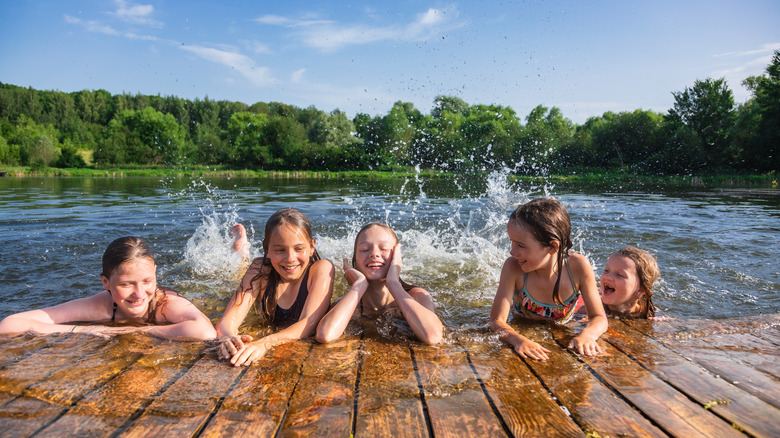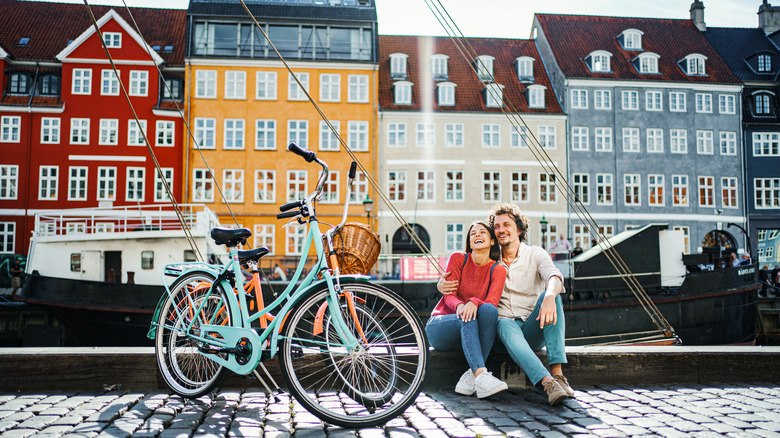Summer travel is starting to feel pretty different these days, all thanks (or, rather, no thanks) to climate change. According to Copernicus Climate Change Service, July 2023 was the hottest month on record, coinciding with heatwaves in Europe, scorching temperatures in Asia, and wildfires in Canada and Greece. For travelers, that meant seeking out more indoor attractions, risking heat exhaustion while sightseeing outdoors, or canceling their trips altogether.
On the heels of these changes, jet-setters are looking for an escape from the blazing heat in 2024, according to a survey by Booking.com. The travel website dubbed these tourists “cool-cationers,” noting that they’re becoming the new norm. Of the 27,000 travelers surveyed, 51% said that climate change will impact how they plan upcoming vacations, and 56% reported that they would visit a cooler destination when the heat starts rising at home.
Data from 2023 research by the European Travel Commission (ETC) revealed a similar trend. The organization’s data found that “pleasant weather conditions” were considered travelers’ top criteria when choosing where to visit. Moreover, the ETC discovered that interest in warm-weather Mediterranean countries dipped by 10% between 2022 and 2023, while northern European destinations grew in popularity among vacationers.
Water will help keep travelers cool

It’s no secret that water and summer often go hand in hand. From resort pool parties to days at the beach, many travelers flock to the water to stay cool on hot days. According to Booking.com’s forecast, this pattern isn’t going anywhere — 36% of respondents in the website’s survey said they’re interested in going on “water-centric vacations” in the new year — though expect to see a wider variety of aqua-adjacent activities than in the past. When the beaches near the equator get too hot, travelers might start turning to the shaded rivers and lakes in cooler locales. And instead of going for a basic swim, vacationers might head to the water to try floating yoga and water meditation, Booking.com suggests.
The travel website also proposes that ice therapy will make its way into globe-trotters’ vacation plans. With the rise of trendy ice baths, more people may be open to trying the practice once the temperatures spike. Expect to see more icy hotel attractions and cold-water retreats in 2024.
Where to beat the heat

Flocking to the water, as Booking.com predicts will become all the rage in 2024, is one way to stay refreshed while the mercury climbs, but you might want to reconsider your go-to tropical getaway. To avoid the heat, consider unconventional seaside spots like Cornwall, England; Northland, New Zealand (the area cools off just when the northern hemisphere is heating up); or Newfoundland and Labrador, Canada.
Another option is to turn your attention north. This could mean visiting a favorite country but sticking to its northern regions (for example, visiting mild Porto instead of balmy Faro in Portugal). Or, beat the heat by visiting countries closer to the North Pole. Scandinavia is one area that should be on your radar, according to experts. “We’re seeing strong interest and desire to take advantage of the Scandi summer,” Tom Marchant, co-founder of the London-based luxury travel operator Black Tomato, shared with CNBC. “Scandinavian destinations like Finland, Norway, Sweden, [and] Iceland are seeing a pronounced rise from the sales front.” If you’d rather not give up your annual trip to a hotspot (literally) like Cancun or Bali, consider going during the off-season instead of summer, when the heat is likely to taper off.
With these recommendations in mind, it’s crucial to mention that travel itself isn’t only impacted by climate change — it can contribute to it. To minimize your carbon footprint when traveling, try staying closer to home or opting for direct flights when planning your next getaway.

